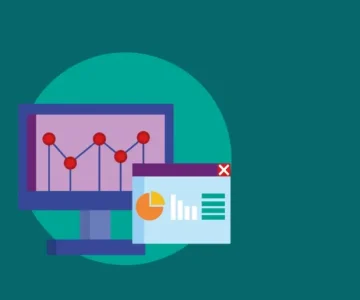In today’s fast-moving business world, the old saying “knowledge is power” feels more relevant than ever. At the core of this truth lies data—a powerful force that shapes decisions, drives strategies, and fuels innovation. Businesses that understand how to harness data effectively are better equipped to adapt, compete, and grow in an increasingly digital marketplace.
This blog explores why data matters so much for modern businesses, the different types you should be aware of, and how companies are using it to achieve remarkable results.
Understanding Data in a Business Context
When we talk about “data” in business, we mean more than just numbers in a spreadsheet. It’s the systematic collection, analysis, and interpretation of information that turns raw figures into valuable insights. This can cover everything from customer habits and market patterns to internal workflows and performance metrics.
Data can be both structured (like sales reports) and unstructured (such as social media comments), each offering unique opportunities for growth and decision-making. For businesses, data isn’t just an accessory—it’s the foundation for building smarter strategies and achieving long-term success.
Key Types of Data Businesses Rely On
- Customer Data
This includes information on buying behavior, preferences, demographics, and feedback. Analysing it helps businesses design products and services that align with evolving customer needs. - Marketing Data
Covers campaign performance, audience engagement, and ROI. It enables companies to target the right audience more effectively and allocate marketing budgets wisely. - Product Data
Tracks product performance, usage, and customer reviews. This information drives improvements and innovations that keep offerings relevant and competitive. - Analytics Data
Encompasses broad metrics like market trends, consumer patterns, and operational performance. It’s essential for forecasting and strategic planning. - Inventory & Supply Chain Data
Provides real-time insight into stock levels, demand shifts, and logistics. It helps streamline operations, cut costs, and ensure timely delivery. - Employee Data
Includes productivity metrics, training needs, and workforce dynamics. Analysing it supports better talent management and a more efficient workplace.
Why Data is a Game-Changer for Businesses
- Smarter Decision-Making – Reliable data replaces guesswork with evidence, giving leaders a clear view of market realities and operational performance.
- Better Understanding of Customers – By digging into customer preferences and behaviors, companies can offer more personalised and satisfying experiences.
- More Effective Marketing – Data-driven campaigns target the right people at the right time, improving results and maximising returns.
- Product and Service Improvement – Feedback and performance tracking help refine offerings and keep them aligned with market expectations.
- Strategic Planning – Analysing trends and forecasting changes allows businesses to prepare for challenges and seize opportunities.
- Operational Efficiency – Supply chain and inventory data help reduce waste, control costs, and improve service delivery.
- Workforce Optimisation – Understanding employee performance leads to better training programs and a more motivated team.
- Cost Reduction – Identifying inefficiencies through data analysis can save time, money, and resources.
- Risk Management – Spotting potential risks early enables proactive action to protect business stability.
- Competitive Advantage – Businesses that excel at using data adapt faster and outperform less data-savvy competitors.
Real-World Examples of Data in Action
- Netflix – Uses viewing history and engagement patterns to suggest personalised content, keeping audiences hooked and engaged.
- Facebook – Curates customised news feeds based on user interactions, ensuring people see content they’re most likely to enjoy.
- Healthcare – Predictive analytics helps hospitals forecast patient needs, detect potential outbreaks, and manage resources more efficiently.
In an era where information drives success, businesses that fully embrace data are the ones positioned to thrive. Whether it’s improving customer experiences, refining operations, or staying ahead of competitors, the right data—used in the right way—can be the most powerful tool in your business arsenal.




